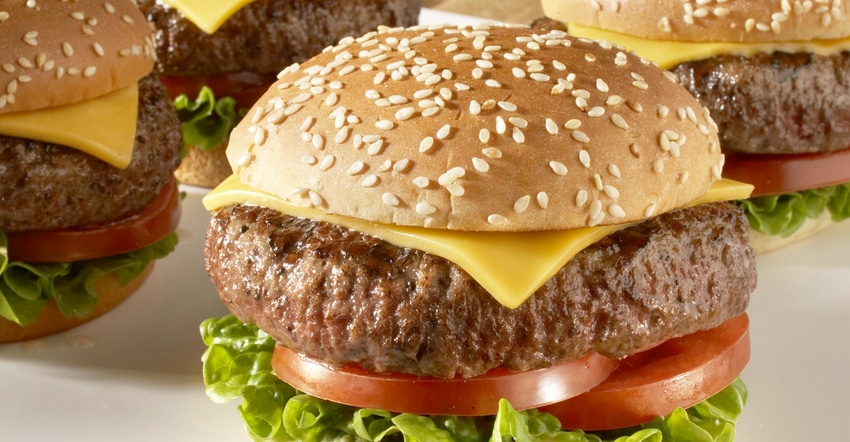Cattle & Climate Part 2: Research reveals beliefs on meat & environment
In part two of this series, we explore new research that suggests consumers aren’t buying that eating meat is destroying the planet.
December 20, 2019

I hope you all had a very wonderful Christmas. As we hit the ground running to get things accomplished in the final days of this decade, today I want to revisit a topic that has really dominated the BEEF Daily blog in 2019 — cattle and climate.
If you missed the first part in this series, read more here.
In part two of this segment, I want to share some interesting food for thought following the release of new research that reveals consumer attitudes about eating meat
This research could perhaps help us shape our messaging when we try to build bridges between producers and consumers.
By understanding how our consumer views this subject, we can more effectively connect the dots and appeal to our intended audiences on their values not our own.
Thanks to the Center for Food Integrity (CFI) for conducting this research. The results, which were announced in a recent press release, indicate that conversations about climate change will shift dramatically in the next two years. CFI also found that there is no evidence consumers associate or link the consumption of animal protein to climate change, despite the never-ending headlines on the topic.
According to CFI, “Currently, 52.2 million people are engaged in the climate change conversation, with less than half of those focused on causes and solutions. However, CFI’s digital ethnography report, which uses a research tool that analyzes millions of conversations online in real time, shows that while the climate change debate is only expected to grow 3.6% in the next two years, the conversation on causes is expected to grow 260% and solutions 202%. The heated dialogue is now focused on ‘what’s next.’
“‘The findings aren’t surprising, given the rapidly growing interest in sustainability,” said Terry Fleck, CFI executive director. “Those interested in causes and solutions want to bring about change by taking action on a personal level and being the change. They also fear making uninformed choices, want to protect the American way of life, and look to science and innovation to provide solutions.’
“While consumers are not talking about a link between consumption of animal protein and climate change, they are talking about the link between greenhouse gas emissions from livestock production and climate change, according to the research. The level of online conversation about this topic is just shy of 26 million, but expected to grow to nearly 210% in the next two years.
“‘While ‘local food’ is not associated with improving climate change, key topics associated with ‘local food’ and ‘improving climate change’ include beef industry topics like cattle farming, beef consumption, industrial agriculture, environmental footprint and water use,’ said Fleck. ‘These topics are more related to causes than local food production to improving climate change.’
“Engaging consumers on the topic of climate change presents a unique challenge given today’s political environment. However, the predicted conversation shift to causes and solutions, and focus on science and innovation, provides an opportunity for the food industry to communicate its successes and its commitment to addressing climate change via technology.
“‘These consumers are information seekers and advocates for the environment, and crave credible information from sources they can trust,’ said Fleck. ‘Provide balanced information, share third-party studies and give them a forum to engage with you on the topic. They want to play a part in improving our planet and ‘be the change.’ We encourage the food industry to do its part to empower them.’”
For more information on CFI’s digital ethnography research visit: www.foodintegrity.org.
In this case, the take-home message is really this: we can either ignore the climate change rhetoric and wait for regulators, retailers, lobbyists, global trade organizations, the media and society to dictate how we are going to be more “sustainable” in the future, or we can lead the conversations and drive our points home with our incredible beef production story, which is already a victory in environmental stewardship and producing more while using fewer natural resources.
To do this though, we have to stick our necks out and share our stories. Only then can we drown out the incessant headlines about cow farts and begin to have productive conversations about what animal agriculture is already doing right in this effort to promote planetary health.
The opinions of Amanda Radke are not necessarily those of beefmagazine.com or Farm Progress.
About the Author(s)
You May Also Like




.png?width=300&auto=webp&quality=80&disable=upscale)
